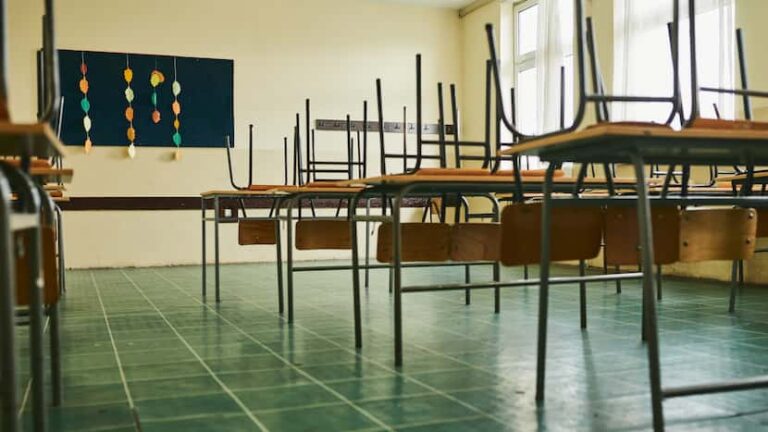The rate of Texas teachers leaving the classroom is decreasing after hitting a historic high in the wake of the coronavirus pandemic.
Education Commissioner Mike Moras presented the latest hiring data Wednesday, telling members of the State Board of Education that the state is “moving in a better direction.”
Still, schools are struggling to recruit and retain educators. This challenge means school districts are hiring more and more teachers without state certification.
Mr. Moras said that in recent years, some schools seemed to be “giving up on teaching qualifications” and moving toward “hiring people off the street.”
Here's what the data tells us:
Texas teacher attrition is decreasing, but lack of respect and support still drives some teachers out
Although still higher than pre-pandemic baselines, the rate at which Texas teachers are leaving the classroom is on the decline.
In the 2022-23 school year, the teacher turnover rate was 13.4%. This number fell to 12.2% in 2023-24.
For a decade before COVID-19, teacher turnover hovered around 10%.
“The number of teacher retirements is slightly higher than historically,” Moras said.
Common reasons why educators consider leaving the classroom include lack of respect and support, excessive workload, and low pay.
The number of new teachers without national qualifications is increasing.
Fewer new teachers are following the traditional route of studying to become an educator while at university.
Roughly one in three new teachers across Texas are uncertified, meaning the state has no way of knowing whether they have received rigorous training.
The percentage of new hires without certification increased to 34%, a historic high.
Moras said some uncertified educators are prepared to open their own classrooms.
For example, in Dallas ISD, non-certified educators receive additional training and support during the school year. The district also pairs new employees with mentors who guide them.
But Moras warned that many uncertified teachers are unprepared and leave prematurely.
This trend is causing concern among some groups of teachers.
“This is unfair to students, parents, and even the educators themselves. They are completely unprepared,” Alliance-AFT President Lena Honea said. “I don't know of any lawyer who is allowed to practice law without passing the bar exam.''
Typically, to obtain certification in Texas, teacher candidates must earn a bachelor's degree, complete an educator preparation program, pass a relevant exam, submit a state application, and undergo a background check. there is.
The path to becoming a teacher without a national qualification is not very well defined.
In some places, Moras said, it's as if district leaders are saying, “Your heart rate is elevated, please come in.''
Kevin Brown, executive director of the Texas Association of School Administrators, said schools will always try to hire the best talent they can find.
But Brown said that while school district leaders are scrambling to hire talented teachers, the state is not seriously addressing health insurance costs, wage lags and the political divisions that permeate classrooms. said.
“If we're serious about addressing the teacher shortage and getting more people qualified, let's spend money to support teachers,” Brown said.
Approximately 14% of new educators entered through another certification program. People often enroll in these programs as they transition into the classroom as a second or third career.
Moras said these programs vary widely in the quality of preparation they provide.
There are several alternative certification companies in Texas that primarily offer online training. The largest of these is on probation after failing to prove it fixed a series of operational problems.
Short-term solutions and long-term problems
Moras cautioned that while hiring uncertified educators may address short-term recruitment needs, this trend is contributing to long-term retention issues.
A state analysis shows that if teachers who entered the classroom without a certification were retained in their first five years at the same rate as teachers prepared through traditional pathways, Texas would have fewer educators to hire. That would have been 7,735 fewer people.
State data shows that students of new teachers tend to have lower academic growth than students of experienced teachers.
Moras acknowledged that these new teachers are much more likely to lead classrooms where most children come from low-income families.
What can Texas do?
Several bills aimed at strengthening the teaching profession were defeated in recent parliaments.
For example, lawmakers have tied the fate of teacher raise funds to the creation of voucher-like programs that funnel state funds to private school tuition. Both bills died.
Other proposals include a Texas teacher training program to train educators similar to doctors and a tiered pay structure that takes into account qualifications.
Meanwhile, Moras said state officials are working to increase flexibility for those who want to become teachers, while also increasing accountability for educator preparation programs.
“This is a top priority for us,” he said.
The DMN Education Lab deepens our coverage and conversations about pressing education issues that matter to the future of North Texas.
DMN Education Lab is a community-funded journalism initiative supported by Bobby and Lottie Lyle, Community Foundation of Texas, Dallas Foundation, Dallas Regional Chamber, Dee Dee Rhodes, Garrett and Cecilia Boone, Meadows Foundation, Murrell Foundation, and Solutions. I am receiving support. Journalism Network, Southern Methodist University, Sidney Smith Hicks, University of Texas at Dallas. The Dallas Morning News retains full editorial control over Education Lab's journalism.

